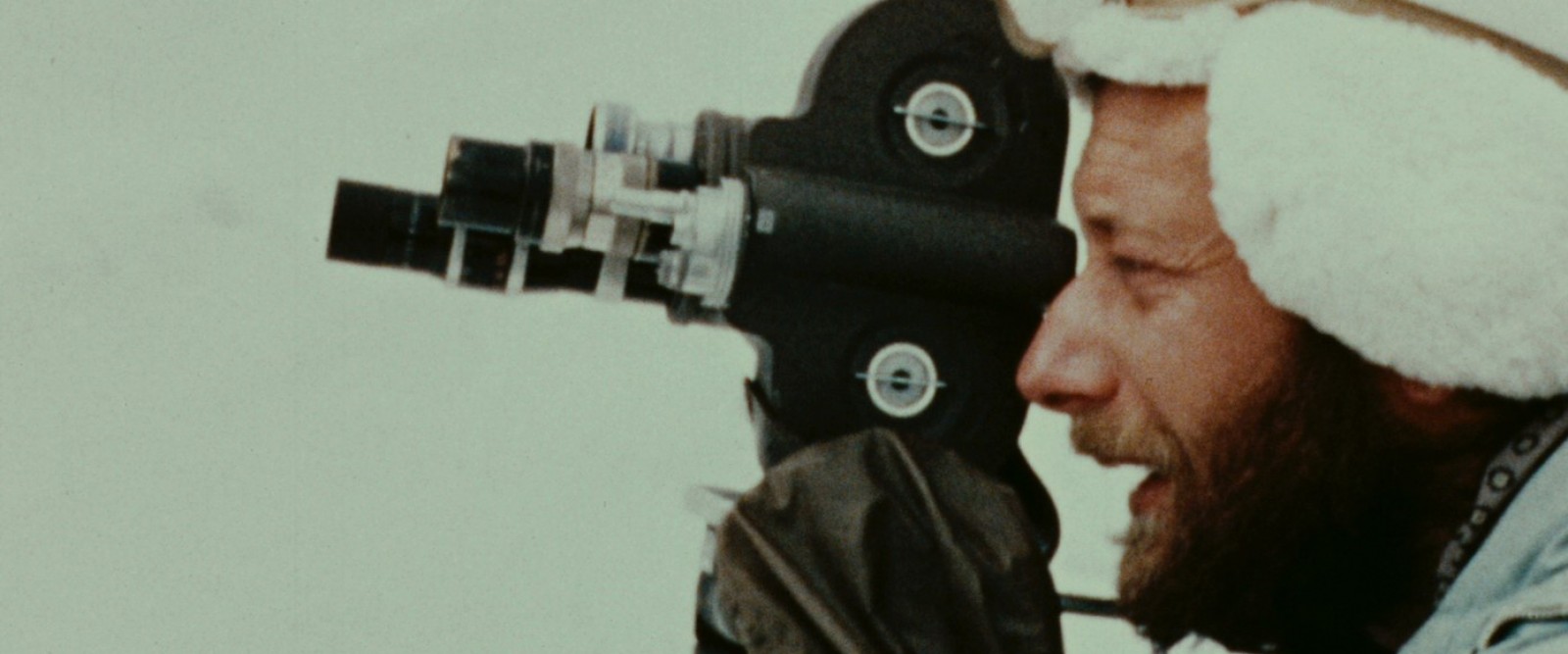Mario Fantin: The explorer with the movie camera

The Trento Film Festival, in which Fantin participated since the first edition in 1952 with Abecedario di pietra and then with further 21 works, pays tribute to the Bolognese director and cameraman, with a selection of his recently restored films.
Mario Fantin from Bologna, with an accounting school diploma under his belt, after the war he chose a profession that did not yet exist: explorer with a movie camera. And he climbed as high as possible, up to the 6000 meters of the second peak of the globe, in the expedition portrayed by the film Italia K2.
Fantin started with the Alps, later joining the most adventurous expeditions around the world, with the idea of coming back home to let audiences experience them cinematically. He often followed Guido Monzino – at first general manager of department stores Standa, the family business, who later developed a passion for the mountains that would lead him to become an important patron-explorer – and brought his 16mm movie camera on over 30 expeditions outside of Europe, making it as far as the Peruvian Andes, Kilimanjaro, Cordillera Paine, Greenland, Tibesti, West Africa… On each occasion, he combined the tenacity and curiosity of a reporter with the ecstasy of someone whose eyes are full of impossible views of the world.
That was until he decided that the world could also be explored from inside the walls of his apartment in Bologna. In 1967, he founded CISDAE (Italian Center for the Study and Documentation of Extra-European Mountaineering) and began gathering what would become an overwhelmingly massive collection, today at the CAI (Italian Alpine Club).
In partnership with FAI (Fondo Ambiente Italiano, owner of the Monzino Collection) and the National Mountain Museum “Duca degli Abruzzi” – CAI Turin (owner of the Fantin Archive), Cineteca di Bologna has undertaken an important project to restore Fantin’s films.
Program curated by Maria Chiara Corazza ( FAI – Fondo per l’Ambiente Italiano), Andrea Meneghelli (Cineteca di Bologna) and Marco Ribetti (Cineteca Storica del Museo Nazionale della Montagna – CAI Torino)









